
Chinese Banyan, Ficus Microcarpa nitida (Retusa) - Plant
(MRP Inclusive of all taxes)
- Shipping ₹79 for entire order
- Dispatch in 7 days
- Country of origin: India

(MRP Inclusive of all taxes)
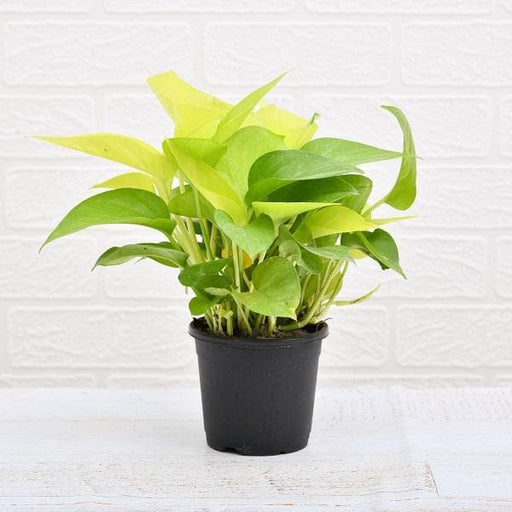 Save 29%
Save 29%
Air Purifier Money Plant with Pot The Air Purifier Money Plant, also known as Pothos or Epipremnum aureum, is a stunning indoor plant that...
View full details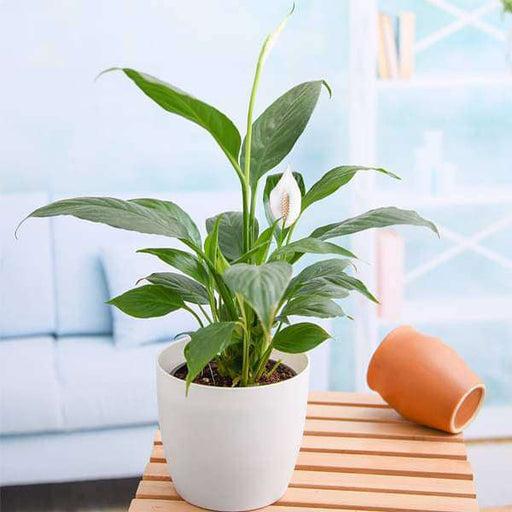
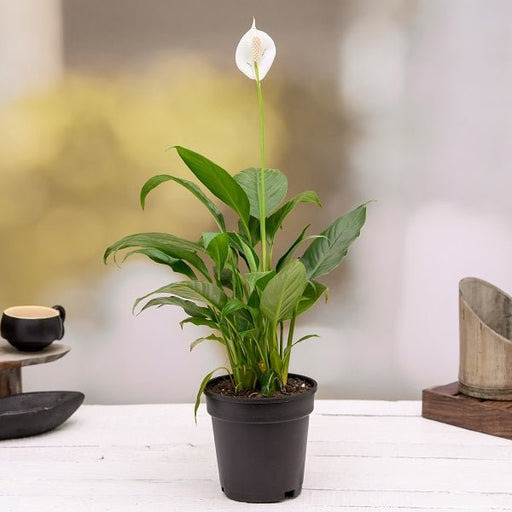 Save up to 15%
Save up to 15%
Peace Lily, Spathiphyllum - Plant The Peace Lily, scientifically known as Spathiphyllum, is a stunning houseplant celebrated for its elegant white...
View full details
 Save 25%
Save 25%
Jasminum sambac, Mogra, Arabian Jasmine - Plant Jasminum sambac, commonly known as Mogra or Arabian Jasmine, is a fragrant flowering plant...
View full details
 Save 18%
Save 18%
Combo Constituents Includes the Parijat Tree (Night-Flowering Jasmine), a culturally significant plant with fragrant flowers. Description The Pari...
View full details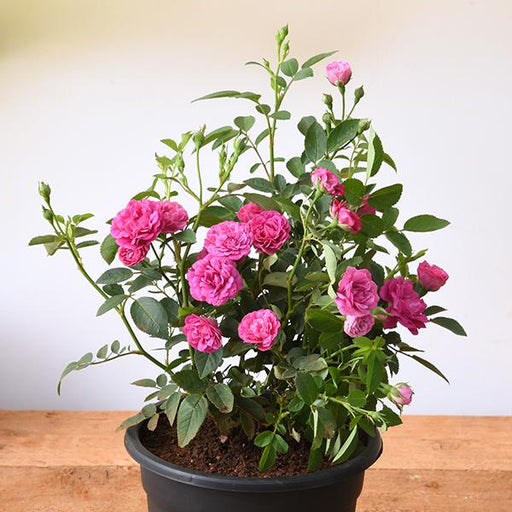
 Save 25%
Save 25%
Miniature Rose, Button Rose (Any Color) - Plant The Miniature Rose, also known as the Button Rose, is a charming and compact flowering plant that ...
View full details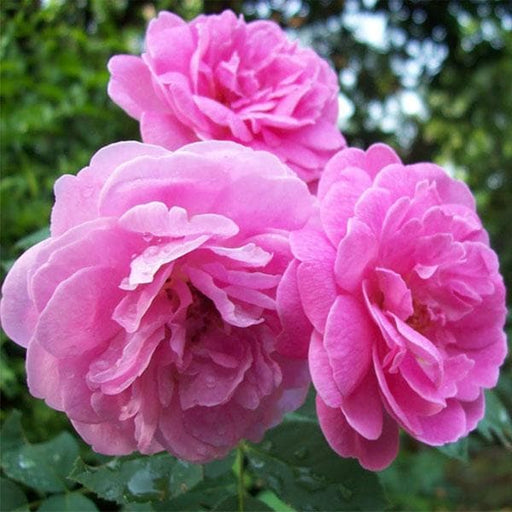 Save 25%
Save 25%
Damascus Rose, Scented Rose (Any Color) - Plant The Damascus Rose, also known as Rosa damascena, is a timeless symbol of beauty and romanc...
View full details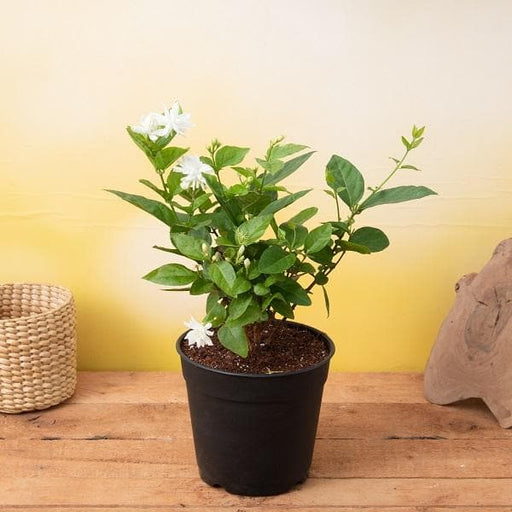
 Save 17%
Save 17%
Beautiful Fragrant Mogra, Arabian Jasmine Plant with Pot The Beautiful Fragrant Mogra, also known as Arabian Jasmine (Jasminum sambac), is...
View full details Save 15%
Save 15%
Pack of Vermicompost and Neem Cake for House Plants Transform your indoor garden with our premium Pack of Vermicompost and Neem Cake, spec...
View full details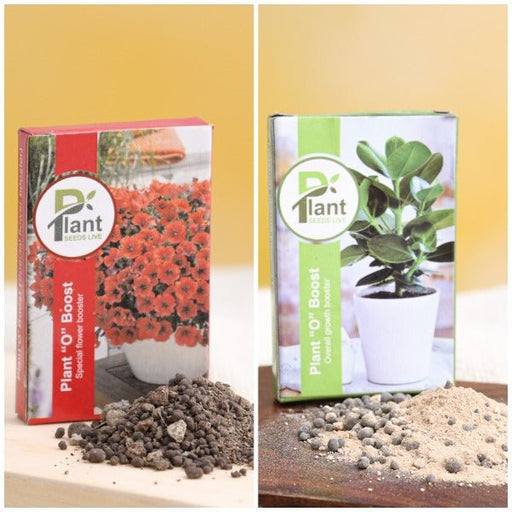
Pack of Plant Growth and Flower Boosters Unlock the full potential of your garden with our Pack of Plant Growth and Flower Boosters! This ...
View full details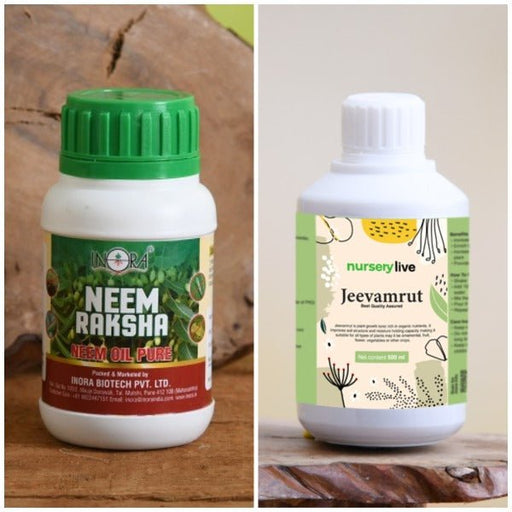 Save 38%
Save 38%
Combo of Jeevamrut and Neem Raksha for Easy Growth and Protection of Houseplants Transform your indoor garden with our exclusive combo of ...
View full details Save 22%
Save 22%
Plant Nutrients Kit (Pack of 16) for a Healthy Garden Transform your garden into a lush paradise with our Plant Nutrients Kit, featuring 1...
View full details Save 16%
Save 16%
Combo of Top Plant Fertilizers Elevate your gardening game with our exclusive Combo of Top Plant Fertilizers, featuring two bags of premiu...
View full details Save 24%
Save 24%
Pack of 4 Additives to Make Soil Healthy and Nutrient Rich Transform your garden into a thriving ecosystem with our Pack of 4 Additives de...
View full details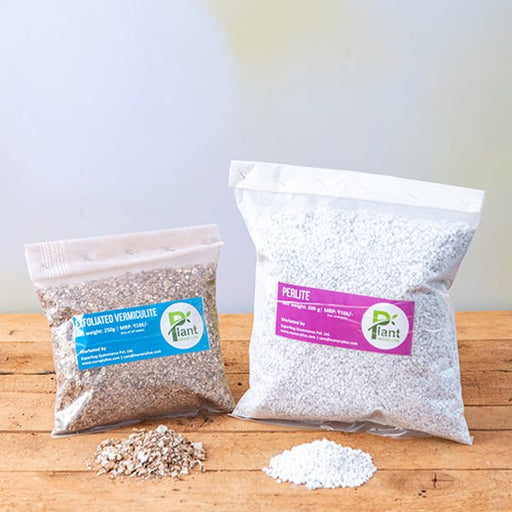 Save 30%
Save 30%
Transform your gardening experience with our premium Combo of Perlite and Vermiculite. This unique blend is designed to enhance soil aeration and ...
View full details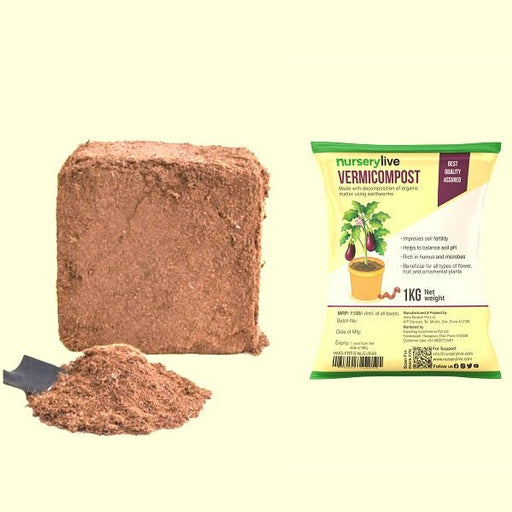 Save 27%
Save 27%
Combo of 2 Vermicompost and Cocopeat - Enrich Your Soil Naturally! Transform your garden into a thriving ecosystem with our Combo of 2 Ver...
View full details
 Save 35%
Save 35%
Best 6 Plants for Perfect Indoor Garden Transform your living space into a lush oasis with our curated collection of the Best 6 Plants for a...
View full details
 Save up to 50%
Save up to 50%
Mini Succulent Garden Pack Transform your space with our Mini Succulent Garden Pack, featuring a delightful collection of 4 any variety beautiful s...
View full details
 Save 30%
Save 30%
5 Best Fragrant Plants Transform your garden or indoor space into a fragrant paradise with our curated selection of the 5 Best Fragrant Plants. Th...
View full details
 Save 24%
Save 24%
Set of 2 Bonsai Looking Grafted Adeniums Transform your indoor or outdoor space with our exquisite Set of 2 Bonsai Looking Grafted Adenium...
View full details Save 45%
Save 45%
Top 4 Die Hard Succulents Pack Transform your indoor or outdoor space with our Top 4 Die Hard Succulents Pack, featuring a curated selecti...
View full details
 Save 30%
Save 30%
5 Best Indoor Plants Pack Transform your living space into a lush oasis with our '5 Best Indoor Plants Pack.' This carefully curated collection fe...
View full details
 Save 25%
Save 25%
Set of 4 Evergreen Air Purifier Plant Pack Transform your indoor space into a lush, green oasis with our Set of 4 Evergreen Air Purifier Pla...
View full details| SrNo | Item Name | Qty |
|---|---|---|
| 1 | Chinese Banyan, Ficus Microcarpa nitida (Retusa) Plant in 5 inch (13 cm) Pot | 1 |
The Chinese Banyan, scientifically known as Ficus Microcarpa Nitida (Retusa), is a stunning evergreen tree native to Southeast Asia. Renowned for its lush, glossy leaves and intricate aerial roots, this plant can grow into a magnificent specimen, making it a popular choice for bonsai enthusiasts and indoor gardeners alike. Its adaptability to various environments and resilience to pruning make it an ideal choice for both beginners and experienced horticulturists.
What sets the Chinese Banyan apart is its unique ability to thrive in diverse conditions, from indoor spaces to outdoor gardens. This plant not only enhances the aesthetic appeal of any setting but also contributes positively to air quality, making it a valuable addition to your home or office. Its historical significance in Asian culture, often symbolizing strength and longevity, adds to its allure.
Special features of the Chinese Banyan include its impressive aerial roots that can create a dramatic visual effect, as well as its ability to adapt to various soil types. This plant is also known for its longevity, with some specimens living for over a century, making it a cherished heirloom for generations.
If you think caring for a Chinese Banyan is like babysitting a cactus, think again! This tropical beauty thrives on attention, so be prepared to pamper it with the right amount of sunlight, water, and humidity. It’s like having a high-maintenance friend who rewards you with lush green leaves and a stunning presence. Just remember, neglect it, and you might end up with a sad, droopy plant that gives you the silent treatment.
The Ficus Microcarpa isn’t just a pretty face; it’s a multitasking marvel! This plant purifies the air, making your home feel like a fresh tropical paradise. Plus, it’s known to boost your mood and creativity. Who knew that having a plant could turn you into a zen master? Just don’t expect it to do your laundry—its talents have their limits!
it is, and it’s fabulous!
The Ficus Retusa is the diva of the plant world, flaunting its glossy leaves and unique aerial roots. It’s like the supermodel of the plant kingdom, always ready for its close-up. With its striking appearance, it can elevate any space from drab to fab. Just don’t let it catch you in sweatpants; it demands a stylish backdrop!
The Chinese Banyan isn’t just a plant; it’s a symbol of strength and resilience. In many cultures, it represents longevity and wisdom. So, when you bring one home, you’re not just adding greenery; you’re inviting a wise old sage into your life. Just be careful not to ask it for life advice—it might just leaf you hanging!
If you’re looking for a fast-growing companion, the Ficus Microcarpa is your go-to! This plant is like that friend who always shows up to the party early, ready to mingle. With the right care, it can grow several feet in just a few years. Just be prepared to give it a haircut now and then; it can get a bit wild!
Want to expand your plant family? Propagating a Chinese Banyan is easier than you think! Just snip a healthy cutting, pop it in water, and watch it grow roots like a pro. It’s like giving birth to a mini version of your favorite plant. Just remember, with great power comes great responsibility—don’t forget to give your new baby some love!
Every plant has its enemies, and the Ficus Microcarpa is no exception. Watch out for pesky pests like spider mites and scale insects. They’re like the uninvited guests at your plant party, and they can wreak havoc if left unchecked. But fear not! A little neem oil or insecticidal soap can send them packing. Your plant deserves a pest-free life!
Looking to add a touch of elegance to your garden? The Chinese Banyan is a landscape designer’s dream! Its sprawling branches and lush foliage can create stunning focal points or provide shade for your outdoor oasis. Just imagine sipping lemonade under its canopy—pure bliss! Just be sure to give it enough space; it likes to spread its wings!
Did you know that the Ficus Microcarpa is a champion air purifier? It’s like having a personal air quality manager in your home. This plant absorbs toxins and releases oxygen, making your space feel fresher than a spring morning. So, if you want to breathe easy and impress your guests, this plant is a must-have!
The aerial roots of the Chinese Banyan are like nature’s version of a dramatic entrance. They dangle down like elegant tendrils, adding a unique flair to your plant. These roots can even take root in the soil, creating a stunning visual effect. Just think of them as the plant’s way of saying, “Look at me, I’m fabulous!”
Ah, the Chinese Banyan! This charming little tree is a tropical superstar, known for its glossy leaves and aerial roots. It’s like the cool kid in the plant world, thriving indoors or outdoors, and adding a touch of zen to your space. Just don’t expect it to share its secrets!
Caring for your Chinese Banyan is like nurturing a diva. It loves bright, indirect light and a well-draining potting mix. Water it when the top inch of soil is dry, but don’t drown it! A little humidity and occasional pruning will keep it looking fabulous and full of life.
Absolutely! The Chinese Banyan is a fantastic indoor companion. It thrives in bright, indirect light and can handle a bit of neglect. Just remember, it’s not a fan of cold drafts or soggy soil. Treat it right, and it’ll reward you with lush foliage and a serene vibe.
Your Chinese Banyan deserves a pot that’s just right—think Goldilocks! A pot that’s too small will stunt its growth, while one that’s too big can lead to soggy roots. Aim for a pot that’s a couple of inches larger than the root ball, and watch it flourish like a superstar!
Watering your Chinese Banyan is like a dance—find the right rhythm! Generally, water when the top inch of soil feels dry. In winter, it prefers to sip less, while summer calls for a more frequent quench. Just avoid the soggy tango; your plant will thank you for it!
Yes, your Chinese Banyan loves a good meal! Feed it with a balanced liquid fertilizer every month during the growing season. Think of it as a spa day for your plant. Just don’t overdo it; too much fertilizer can lead to a plant that’s more “overcooked” than “well-done.”
Good news for pet lovers! The Chinese Banyan is considered non-toxic to cats and dogs. However, while it won’t send your furry friend to the vet, it’s still best to discourage munching. After all, we wouldn’t want them to think they’re at an all-you-can-eat salad bar!
The Chinese Banyan is a bit of a show-off! Under ideal conditions, it can grow several feet a year. With proper care, you’ll see it transform from a cute little sapling to a majestic tree in no time. Just be prepared for the occasional pruning session to keep it in check!
Absolutely! Propagating your Chinese Banyan is like creating mini-me versions of your plant. You can take cuttings and place them in water or soil. Just be patient; roots take time to develop. Soon, you’ll have a whole family of Banyans to show off to your friends!
Your Chinese Banyan might attract some uninvited guests like spider mites or scale. Keep an eye out for tiny webs or sticky residue. A gentle wash with soapy water or neem oil can send those pests packing. Think of it as a plant spa day—clean and pest-free!
Absolutely! Shaping your Chinese Banyan is like giving it a stylish haircut. Regular pruning encourages bushiness and helps maintain its shape. Just remember to use clean, sharp tools and avoid going overboard. A little snip here and there will keep your plant looking chic and fabulous!